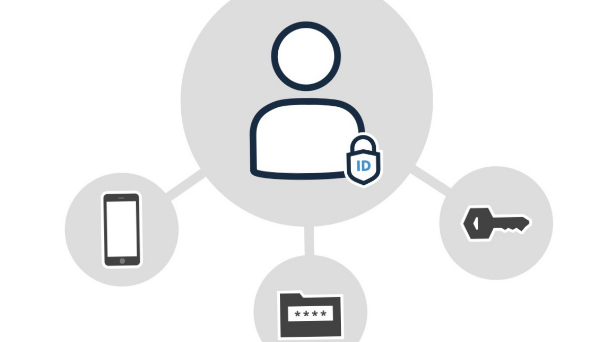While many of them regularly assess the risks to their business, executives do not necessarily see the threat of online fraud.
A threat that small businesses are particularly likely to neglect. However, cybercriminals are on the lookout for vulnerable victims everywhere. And to protect businesses from fraud, you have to be proactive.
Below you will find our six practical tips to help businesses fight valiantly against fraudulent behavior and other pitfalls.

1. Have a security audit
It is difficult for companies to know how to protect themselves from online fraud if their managers do not understand the problem areas. The security audit enables cyber security experts to identify weaknesses in the business. Fixing these vulnerabilities reduces the chances for cyber criminals to scam the business with ransomware, for example, requiring ransom money to restore access to the victim company's files.
Despite its cost, the payment of the ransom could be perceived as the easy way to appease the crooks. However, the expected results are not always at the rendezvous. According to a micro-survey carried out with companies victims of such attacks and having accepted to pay the ransom, only 45% of them were able to recover their data after having paid. More seriously, the average amount paid per business was $ 4,323.
Regardless of the conclusions of the security audit, companies must take into account advice to strategically strengthen their networks against fraud attempts. Initially, managers may feel overwhelmed, fearing that the problem is insurmountable. However, preventive measures are fully justified in view of the prevalence of online fraud.
2. Establish a company-wide password policy
Enterprise-wide password policies can also help protect the business from online fraud. The harmful power of cybercriminals is indeed increased when they have passwords.
Apart from the importance of setting long, strong passwords that do not match any word in the dictionary, employees should also be aware of the risks of sharing passwords between colleagues or using the same passwords. for multiple sites.
Passwords are used to connect to bank accounts, communication platforms, accounting software and many other applications that may contain sensitive information. Without good practices governing the use of passwords, companies are exposed to an increase in the damage associated with the exploitation of passwords by cyber-crackers.
The company that uses sites and services that offer two-factor authentication can use this feature wisely. With two-factor authentication, password users need to know the correct character string and have something (such as a temporary access code) before they can access the corresponding site or service.
For example, many online banking sites know when a user tries to access an account from an unknown computer. They then send the account holder a code by email or SMS to enter in addition to the password. With this method, using the password alone is not enough. As a result, accounts using two-factor authentication potentially benefit from a heightened level of security to deal with online fraud.

3. Know how to spot the signs of online payment fraud
When companies take the initiative to learn to recognize the signs of payment fraud , they are likely to be surprised.
For example, payment fraud does not always involve large amounts and may take the form of a series of small payments or repeated payment attempts over time - which may be a particular problem for small businesses. According to a survey conducted in January 2018, four out of ten small businesses face cash flow problems. When unjustified transactions remain too long invisible, they may exacerbate these problems.
The persons responsible for the management of the bank accounts must check the associated registers daily and report anything that seems suspicious to them. The definition of rules to regulate the professional expenses of the collaborators, their capture and their validation should facilitate the detection of any suspicious transaction.
In addition, some companies will probably want to invest in a machine learningsoftware that learns to characterize the normal activity of an account and that alerts them when something is wrong.
4. Integrate online fraud with your employees' training topics
The fight against online fraud is a collective initiative that should, ideally, be top-down. In short, by making online fraud one of their top priorities, company leaders encourage their employees to follow their example. All employees must be trained in what constitutes online fraud.
Some fraud attempts spark the prospect of earnings and free products. One can imagine that a potential victim is aware of the opportunity to win a quiz or to have access to expensive software free of charge provided they provide some information first. But fraud can also involve transactions in the workplace. Like online lottery scams who ask "winners" to provide sensitive information (such as their bank details) to receive money, some scammers target businesses and ask them to provide information so they can stay. conform to certain organizations.
In a phishing attempt, cybercriminals have even pretended to be US tax services. These fake tax officials tried to convince taxpayers preparing their tax return to provide information for, supposedly, updating their tax records.

If employees are better able to spot the warning signs of online fraud, they will be more likely to avoid falling into the trap and report to the right people any suspicious messages received at their place of work.
5. Become aware of the role that third parties can play
To better protect a business from online fraud, you need to know the types of frauds that can be committed by third parties related to the business - including its customers and subcontractors.
Some customers may defraud a business by trying to return items from an online store while those items were purchased elsewhere, or returning items for invalid reasons. Recently, Amazon was cheated of more than a million dollars and three people were sentenced to long prison terms.
Amazon started sending warnings to some customers or closing certain accounts associated with customers who were referring too many items or who were doing so for illogical reasons compared to the majority of buyers. Other stores are doing the same to monitor purchases and crack down on what they refer to as "serial removers".
With the subcontractors, we talk about fraud in case of invoicing to the client company of works that have never been executed. Online, this kind of fraud can happen with freelancers who do not work on site. Before making a blind trust and paying all the bills received, companies must carry out careful checks.
6. Carefully review all online applications - especially urgent requests
Some companies want so much to satisfy their interlocutors that they rush to meet any need without ensuring the honesty of the request. Companies must carefully evaluate all online applications that look legitimate, especially if the sender insists on the exceptionally urgent nature.
In order to trap their victims, many cybercriminals use dramatization tactics, evoking the risk of account closures or potential fines if the victim does not act immediately. These dishonest scenarios use springs like fear. Before making hasty decisions that could disrupt business operations, it is best to consult a lawyer or cyber security experts.
Online fraud affects businesses of all types and sizes
Ultimately, all businesses can be subject to online fraud attempts. Fortunately, aware organizations know how to identify the potential characteristics of fraud and how to respond in the best possible way.
These suggestions will help businesses get off to a good start in tackling fraud issues and determining the best tactics for their organization.






0 Comments